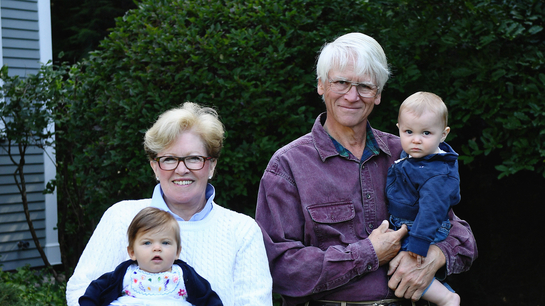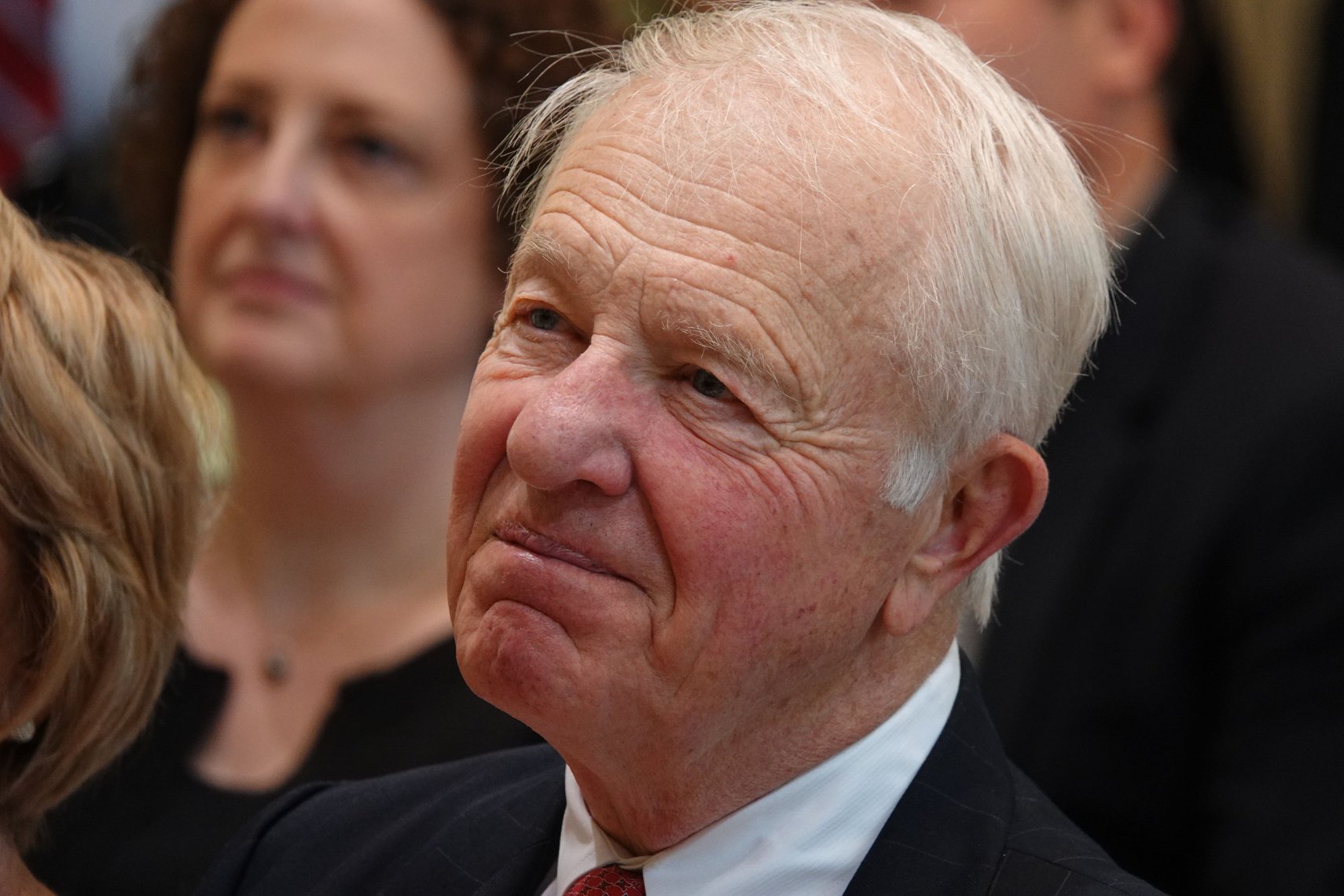The College Donor Digest
Intelligent College Giving: Bob and Barbara Frick
February 02, 2021
 In the latest installment of our Intelligent College Giving series, ACTA President Michael Poliakoff interviewed Mr. Robert (Bob) Frick about his experience with higher education giving. Bob, a successful banker, and his wife, Barbara, a former teacher, have made several major gifts to Washington University in St. Louis. Bob is also a volunteer at the university and with Habitat for Humanity. He shares his story and some invaluable insights about higher education.
In the latest installment of our Intelligent College Giving series, ACTA President Michael Poliakoff interviewed Mr. Robert (Bob) Frick about his experience with higher education giving. Bob, a successful banker, and his wife, Barbara, a former teacher, have made several major gifts to Washington University in St. Louis. Bob is also a volunteer at the university and with Habitat for Humanity. He shares his story and some invaluable insights about higher education.
You and your wife have been donors to Washington University for decades. How did your philanthropy there begin?
For me, it started with a great college experience and strong relationships with people on campus. The faculty were really impressive. A couple years after graduation, I needed some advice. I asked for half an hour of time from a former professor of mine, the dean of the business school. He spent five hours with me. The faculty and staff at Washington University were excellent at fostering that kind of personal connection and maintaining it over the years.
My wife and I started donating about five years out of school. We gave around $50 for a number of years based on a postcard. Over time, the school made an effort to get to know us, so, as our capacity grew, they approached us with ideas that reflected our interests.
What motivated your first major gift to Washington University?
I have a deep gratitude for what I was given as a student. Washington University gave me a full-ride scholarship for six years, for undergraduate and postgraduate degrees, so I like to think of my giving as a “deferred tuition payment plan.” Actually, it turns out that the future value of that scholarship came to be about $1.5 million, which was almost exactly what Barbara and I gave to endow the Robert and Barbara Frick Professorship in Business. In my opinion, there was an obligation to give back because my education at Washington University got me started in life, and I would not have had the success that I had without it.
As you moved away from supporting general operating funds, was there a philosophy that guided your major gifts?
There was an idea behind our gifts, and it was based on something that the prior chancellor of the school said to me on his first day on campus. He called the needs of the school a three-legged stool, and that idea really stuck with me. A good school has excellent instructors, dedicated students, and attractive physical facilities. We intentionally gave to each of those legs over a period of about 15 years for projects that met both our interests and the school’s needs.
Seeing the school’s needs as a three-legged stool is a striking image and a compelling way to think about giving priorities. Can you discuss how your different gifts supported those legs?
Our first significant gift was for instructors, establishing the Frick Endowed Chair. If professors are teaching within the value system that my wife and I believe in, we feel good about that. We wanted a named professorship because those are only given to the top instructors; they earn it.
We then decided to establish a scholarship for students. We met with the recipients after the first year and had the pleasure of hearing them express their appreciation. Many of them said they could not have afforded to go to Washington University without our scholarship help. Learning how our gift helped people was immensely rewarding.
A few years after we made these gifts, the university approached us with a few different options, but my wife and I narrowed it down over a six-month process. I sat down with the head of the business school, and he showed me a design for what became the Frick Forum, a three-story amphitheater in the center of the business school. I found it interesting and felt most connected to the business school, so we decided to fund that project.
What advice do you have for other philanthropists seeking to make a meaningful investment in higher education?
My best advice would be to find something that engages you. Conversations are vital to the giving process. If you are capable of providing meaningful funding, the university should be reaching out to you already. You can ask them, “What do you need?” “I’m not interested in that.” “Well, what do you really need?” “What else?” Feel free to engage in that dialogue and provide your own suggestions. Open conversations help you focus your interests and identify what you want to support that best fits the school’s needs.
When you give to help a university meet its needs, you are not just dealing with the institution. A key to successful long-term giving is the relationship you develop with the people you are dealing with and believing that those who come after them will be equally good or better. It is the people who ensure that the institution will go on and give you confidence that you are investing your money in something that is going to be around for a long time. Be confident you can trust the people who are in charge of overseeing your gift before you give.
What have been the most rewarding aspects of your higher education philanthropy?
Seeing the end results is very rewarding. We have a personal relationship with the professor holding the Frick Chair, who is excellent. We hear from these truly impressive students on scholarships who tell us frankly, “I could not have gone to Washington University without your assistance. I would have gone to the state university and stayed home.”
The physical facility was based off of the Roman forum, and it is really beautiful. Because of the way it was constructed, the forum is used by the whole school, not just the business school. I enjoy hearing the way people talk about it and the fact that the school shows it off to attract students and faculty.
The fact that all these gifts will last a long time is especially rewarding. Helping a student does not last just four years, it lasts for the lifetime of that student and even influences the lives of their children.







